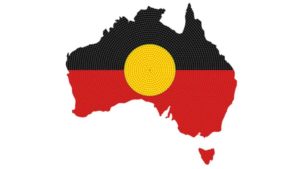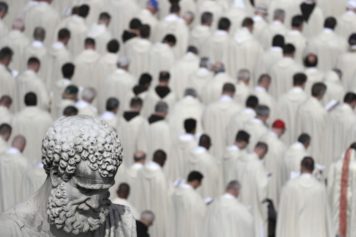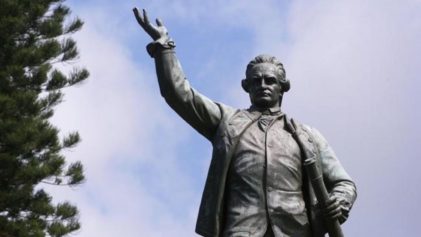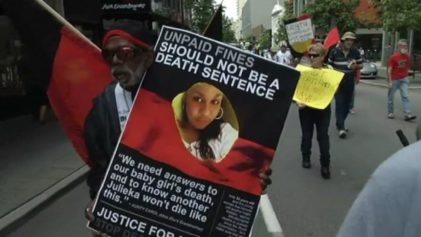
Source: gizmodo.com.au
May 27 marks the 50th anniversary of the 1967 Australian Referendum, in which Australians voted to include Black people — known as Aboriginal and Torres Strait Islander people — in the national census and to allow the government to make laws for them. For the first time, Black Australians were counted as human beings. Only in 2008 did the government issue a formal apology for the injustices committed against Aborigines. Half a century later, there has been an effort by the Australian government to push for a new referendum, one to amend the constitution to officially recognize indigenous peoples. Rejecting a constitutional reform process perceived as being for the benefit of whites, Black leaders called instead for a treaty, a representative body and a truth and justice commission.
Today 50yrs ago AUS voted to amend the constitution to better recognise Aboriginal & Torres Strait Islander peoples #1967referendum #NRW2017 pic.twitter.com/y1MHaXyKKs
— Aust Parliament (@Aust_Parliament) May 26, 2017
Mutitjulu ceremonial leaders at the opening ceremony of the National Constitutional Convention #conrec #Uluru pic.twitter.com/RBYWBjGGOw
— Referendum Council (@ref_council) May 25, 2017
This past week, a constitutional convention was held in Uluru in the Northern Territory of central Australia, where a delegation of Black Aborigines met to discuss whether indigenous people should seek constitutional recognition in an effort to address racial discrimination. The victims of genocide, slavery and colonialism, and today facing hardship and not enjoying prosperity in the country in which they have lived for tens of thousands of years, they discussed how the constitution should be reformed to benefit them. There were about 250 in attendance at the three-day event, as Reuters reported.
Final day of the National Constitutional Convention at Uluru kicks off #conrec #Uluru pic.twitter.com/ZFeWju4J55
— Referendum Council (@ref_council) May 26, 2017
A number of issues were on the table, including the formal recognition of Aboriginal people in the Australian constitution, as is represented by the government-supported Recognise campaign. Voices in the community expressed concern that such an option would represent tokenism and feel-good symbolism, window dressing that does not address the fundamentals of racial justice. Some critics of Recognise argued that they do not need recognition because they are well aware they were invaded and subjugated, their land taken away. Another point of view expressed by indigenous groups was that Recognise only served to sell out the interests of Black people who were not consulted or invited to the table.
Constitutional recognition does not address sovereignty and self-determination for Black people, specifically rights to the land. Australia is the only British Commonwealth nation that does not have a treaty with its indigenous people, although Australian states are leading the charge to begin forging treaties with Aboriginal communities, as Australian Broadcasting Corporation (ABC) reported. Still another area of consideration is political power and new structures to enable Aboriginal people to have their voices heard in the government. Numbering 700,000 out of a national population of 23 million, Black Australians face the challenges that Black people face elsewhere, including the legacy of racial oppression, poverty, police abuse and mass incarceration, trauma and health challenges.
Amy McQuire, an Aboriginal journalist with 98.9FM in Brisbane, said many Aboriginal people believe the referendum process has been about white control and the majority of the country controlling the future of a historically disenfranchised 2 percent who are struggling to gain control over their future.
“The recent consultations lead by the Referendum Council were an attempt to try and salvage the process, which, for over the past five or six years, has been largely taken out of Aboriginal hands,” McQuire said before the conclusion of the Uluru conference. “There has been a huge amount of cynicism around constitutional reform, largely because of the government-funded Recognise campaign, which called for people to support the process when we had no idea what question would be taken to referendum.”
McQuire called symbolic recognition of Black people a disaster, particularly if such a referendum fails. “There’s a feeling that Australia will either pat themselves on the back and try and use a referendum to drown out the very real human rights abuses still occurring, or if it fails, that the political momentum for issues like treaty may be lost and it could set us back yet again.
“I still think the process hasn’t been transparent enough, and I don’t believe the nation is mature enough to deal with this. Australia still can’t grapple with its unfinished business — the continual theft of Aboriginal land.”
As National Indigenous Television (NITV) reported, the gathering of Aboriginal leaders decided that constitutional reform would no longer be a priority, but rather there would be a treaty commission and a truth and justice commission that would run in tandem. These representatives also recommended a body to advise parliament on matters involving Black people and “to supervise a process of agreement making between governments and First Nations and truth-telling about our history.” The group also called for constitutional reforms to empower their people and for the voice of First Nations to be enshrined in the Constitution.
In an official statement, the Uluru forum members proclaimed the sovereignty of the Aboriginal and Torres Strait Islander peoples as a spiritual concept that “has never been ceded or extinguished, and co-exists with the sovereignty of the Crown.”
How could it be otherwise? That peoples possessed a land for sixty millennia and this sacred link disappears from world history in merely the last two hundred years?
With substantive constitutional change and structural reform, we believe this ancient sovereignty can shine through as a fuller expression of Australia’s nationhood.
Proportionally, we are the most incarcerated people on the planet. We are not an innately criminal people. Our children are alienATed from their families at unprecedented rates. This cannot be because we have no love for them. And our youths languish in detention in obscene numbers. They should be our hope for the future.
These dimensions of our crisis tell plainly the structural nature of our problem. This is the torment of our powerlessness.
The Uluru convention announced that, while they were counted in 1967, 50 years later in 2017, they seek to be heard: “We leave base camp and start our trek across this vast country. We invite you to walk with us in a movement of the Australian people for a better future.”


